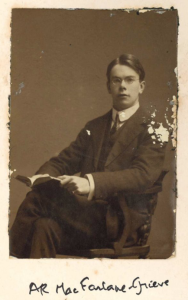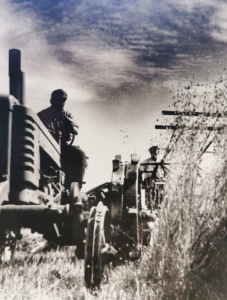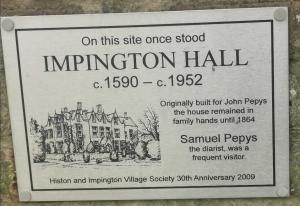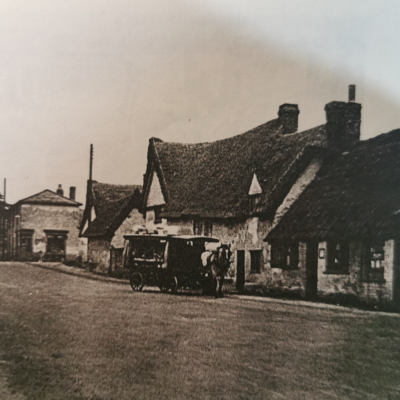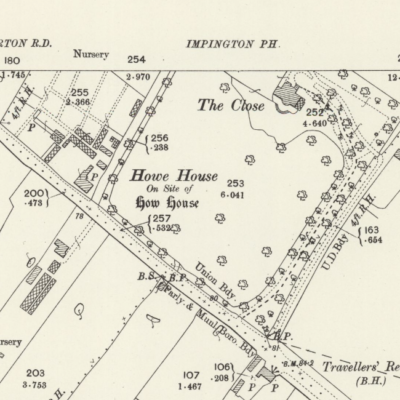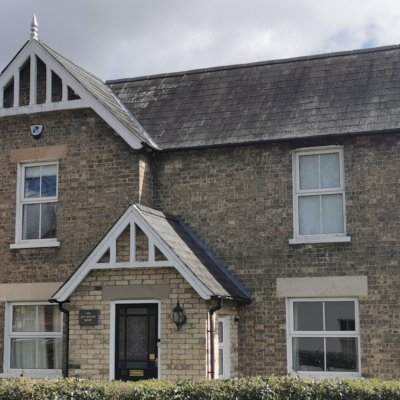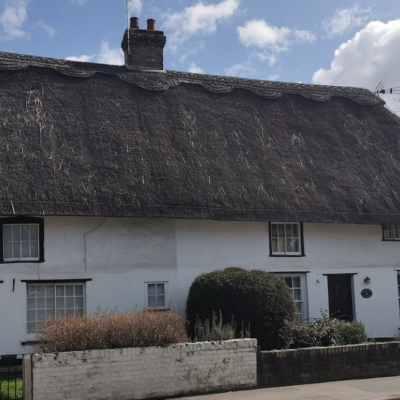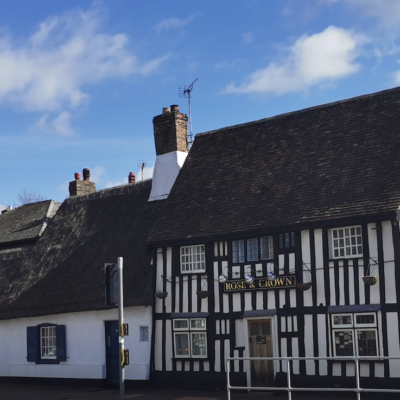Search by topic
- archaeology
- Building of Local Interest
- charity
- church
- crime
- dressmaker
- fire
- Great Eastern Railway
- Listed building
- Mapping Relief
- medieval
- oral history
- poverty
- Public House
- Rattee & Kett
- Religious House
- Roman
- scholar
- school
- Then and Now
- tudor
- women
- work
- world war one
- world war two
Search by text
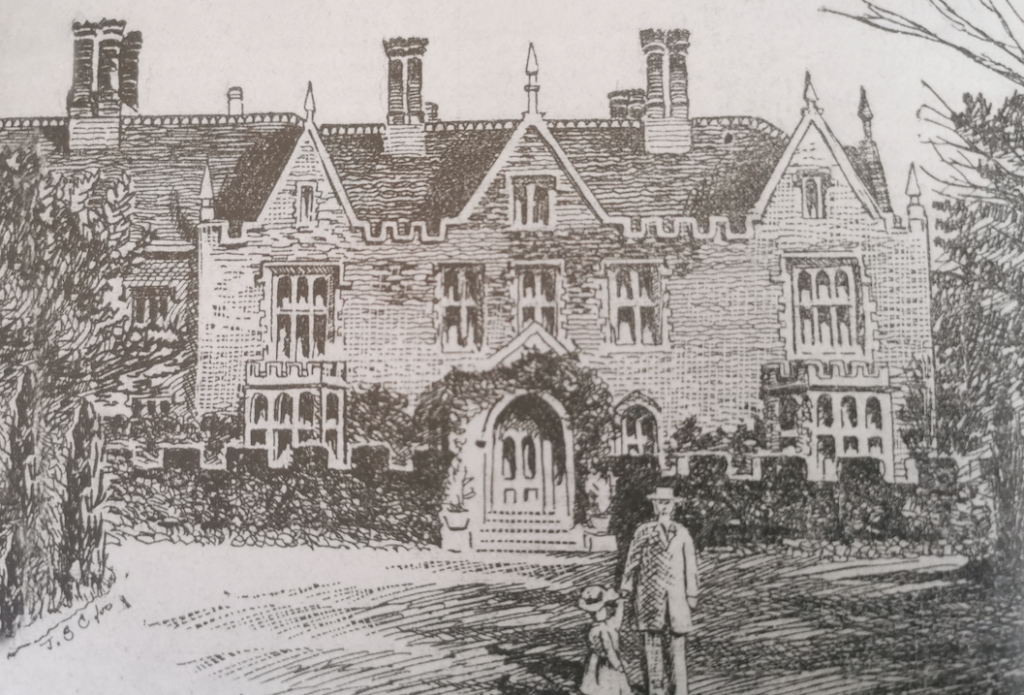 Impington Hall (drawing by J S Clarke) (Cambridgeshire Collection)
Impington Hall (drawing by J S Clarke) (Cambridgeshire Collection)Impington Hall / Park
History of Impington Hall
This is the second of Cissy’s sketchbook. Click on the image to open the e-book. See below for more of her sketchbooks.
TIMELINE
1579 building started by John Pepys
c. 1650: owned by Talbot Pepys, Cambridge MP (uncle of diarist Samuel Pepys)
1661 several visits to the house by Samuel Pepys
late C18th: description of Hall by Rev William Cole:
“The House pleased me much and is the best of the sort I ever saw. A noble entrance hall is in the centre with 2 Corinthian pillars on one side. There is a common dining Parlour and Kitchen, and on the other side an elegant Dining Room and Drawing Room, and by the hall a most beautiful Salon and Staircase with an open space to the top of the house with a gallery to which all the bedchambers have entrance, the whole elegantly fitted up and furnished, overloaded with carving and stucco.”
1805 Anne Pepys died and hall passed to Pine-Coffin family of Devon
1872 Hall offered for sale by Charles Bamford. Catalogue of sale survives Bought by Mr Caldwell
1899 Macfarlane-Grieve family move to Impington. William had inherited property. 460 acres was to be sold to Chivers in 1921.
c.1900: Hall owned by W A Macfarlane-Grieve, then Mr Morey-Weale.
Notes on the Macfarlane-Grieve family written for the Museum of Cambridge by Carolyn Ferguson:
1901
Florence Emily Macfarlane-Grieve [née Fuller], wife, 35, b Devon
Reginald William, 14, b London
Evelyn Mary ‘Cissy’, 15, b London
Alwyn Ronald, 12, b London
Angus Alexander, 9, b London
Gavin Malcolm, 8, b London
Elizabeth Harriett Chamberlain, 45, cook, b Essex
Thomas Coleman, 18, kitchen maid, b Beds
Rachel Leonard, 27, parlour maid, b Yorks
Alice Rainbird, 21, housemaid, b Herts
Sarah Jane Springthorpe, 24, children’s …. maid, b Rutland
Daisy Linnie Jeraldine Wiman, 18, housemaid, b Hants
Ethel Eliza French, 16, under housemaid, b Herts
William Alexander Comyn Macfarlane, of Penchrise and Edenhall in Roxburghshire, and Impington Park in Cambridgeshire, was the son of William Macfarlane M.D., F.R.C.S., and Margaret Verner (Jane), only daughter of George Grieve, of Eastfield in Berwickshire. Educated at the High School in Edinburgh, and at Balliol College, Oxford, he became a scholar of St John’s College, Oxford, took his M.A., entered Lincoln’s Inn and was called to the bar. A Justice of the Peace for Roxburghshire, Berwickshire and Cambridgeshire, and a Fellow of the Society of Antiquaries of Scotland, he took the additional name and arms of Grieve by royal licence 12 June 1876 on succeeding to the estates of Edenhall and Penchrise under the will of his uncle Alexander Grieve. He married, 10 February 1885, Florence Emily Butler, daughter of the Rev. Morris Joseph Fuller, Vicar of St Mark’s Marylebone. They had four sons and a daughter. (From British Armorial Bindings)
Evelyn Mary ‘Cissy’ was a natural artist and her sketchbooks, belonging to Magdalene College, Cambridge and on loan to the Museum of Cambridge, show the development of her skills from her teens to her twenties. The books are part of a bequest to the College from Gavin Macfarlane-Grieve in 1974.
Cissy Macfarlane-Grieve Sketchbook 3 commentary
Cissy Macfarlane- Grieve Sketchbook 4 commentary
1911
William Alexander Macfarlane-Grieve, 67, landed proprietor farming part of estates, b Scotland
Reginald William, 24, student Oxford Univ., b London
Alwyn Ronald, 22, student Oxford Univ., b London
Angus Alexander, 19, student at Durham Univ., b London
Gavin Malcolm, 18, school at Cambridge, b London
Annie Maud Chapman, 36, cook, b Suffolk
Mary Elizabeth Herry, 36, parlourmaid, b Yorks
Alice Rainbird, 31, housemaid, b Herts
Florence Mary Davidson, 24, housemaid, b Hants
Annie Elizabeth Gillson, 23, housemaid, b Swaffham Prior
Harriet May Hamer, 18, kitchenmaid, b Essex
Isabel Kenward Thorne, 27, laundrymaid, b London
Evelyn died in 1915 in London. Her address was 51 Welbeck Street, she was 28, and buried at Brompton Cemetery.
William A Macfarlane Grieve died in 1917 at 35 Trinity Street.
The Keble College website contains a profile of Alwyn.
In 1920 – 1936 Florence Emily was living with her son Gavin at The Manor, Toft. Florence died in Cambridge in 1937.
In July 1934 a story appeared in the press about Reginald William Macfarlane Grieve: Schoolmaster who vanished believed drowned. He was a house master at Sherborne School. His clothes were found on the beach at Seaton, 20 miles from Sherbourne, his car a short distance away. He was 45. (Dundee Evening Telegraph 10.7.1934)
1926 bought by Chivers and Sons. It was an educational centre for their employees until the war.
WWII: used by Royal Engineers to billet troops. Italian prisoners of war were house in Nissan huts in the garden.
1953 pulled down by Chivers family. A granary was erected.
1990s: site cleared for construction of Percheron Close.
This information and further commentary can be found at:
https://histonandimpingtonvillagesociety.wordpress.com/history/impington/impington-hall/
Contribute
Do you have any information about the people or places in this article? If so, then please let us know using the Contact page or by emailing capturingcambridge@
License
This work is licensed under CC BY-NC-SA 4.0





